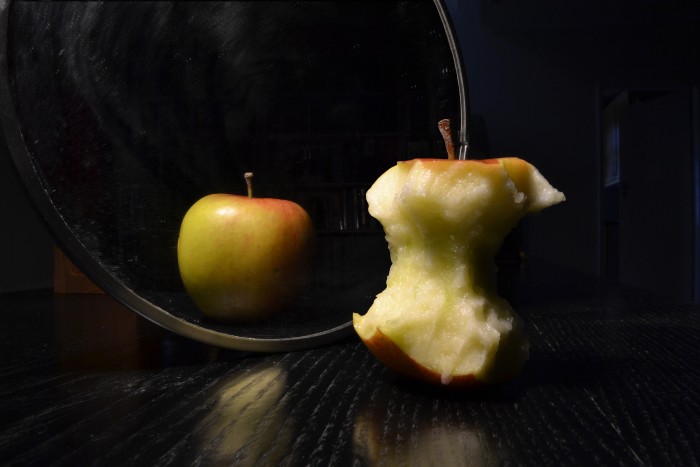There’s something we don’t often talk about when it comes to food and body image and eating disorders, and that’s the actual food.
While actively working at recovery from my eating disorder, I went to a therapist and, of course, he tried to get at the underlying issues that caused my problems. And he was right: the behaviors around food and body image are only a symptom of something deeper.
But the problem is, the actual food still has to be dealt with. You can’t just quit it and then get to the root of the matter. You have to deal with food every day, even while trying to peel the layers back. And so, without talking about food and getting a handle on it, a person can’t possibly find enough peace and emotional space to do deeper work.
This, in a nutshell, is the problem: You can’t go “cold turkey” on food.
It’s kind of embarrassing, not realistic, and really not very nice, but I’m a little jealous of people with other kinds of addictions. I know it’s not fair. I feel, deeply, for anyone with any kind of addiction. I know how painful it can be. But, in a strange way, I wish mine were different.
You see, I can talk around the subject, promote being nice to yourself, talk about why I indulge in wine with dinner a few times a week and promote mindfulness from the rooftops, but it will never have enough meaning without a little context: I’m a food addict.
I’ve had plenty of “definitions” for my problems over the years. And I’ve grown and changed and learned how to (mostly) treat myself well. But the problem is, right now there is no definition for what goes on with me, and so many others, and yet it’s still difficult. Still requires constant vigilance.
I am a food addict. When I have a bad day, get nervous, am confronted with a problem my logical brain can’t solve, or just lose my mula bandha or forget to pause between taking in information and reacting, I turn to food. Not alcohol. Not cigarettes. Not drugs or gambling. Nope. It’s food—a thing that is supposed to nourish me.
The problem has changed and lessened quite a bit over the years. The ‘bad food days’ certainly happen far less frequently. And it’s not the same “food” anymore either. It used to be that it was bad-for-me food, like pizza or cupcakes or ice cream or just way too much of all three. Now it might be that I just eat the entire jar of almond butter, have an extra snack I didn’t physically need, or go all out at a meal when I’m not really hungry. But it is still just as painful when it happens. And it always takes me by surprise.
After all, I’m supposed to be this highly evolved yoga teacher, healthy living pusher, wellness warrior. Right? But if I’ve learned anything on this quest for health and freedom, it’s that we none of us escape our natures; we just learn more about them and how to deal with them as we go along.
I hear a similar tale from friends and clients all the time: They thought they were fine. They’d moved on with their lives and health. Learned how to treat themselves well. Stopped dealing with “the issue” every day of their lives, then something happened and they had a bad day they didn’t see coming. And they beat themselves up over it.
Here’s the big problem: you can’t go “cold turkey” on food. You just can’t quit it. You’ve got to eat every day. You can’t cleanse away the issue, or throw out all your food and refuse to buy more. You can’t move somewhere food isn’t constantly in front of you and you can’t decide to just not deal with it. You have to keep making food choices, every day of your life, and try to navigate the rough waters no matter what. And so often people with food addictions take great care to eliminate their “triggers” only to find they’ve created new ones. Nut butters replace frosting; whole grain breads replace cookies; even dates can replace candy bars. And it’s not the same for everyone, so what is the formula for guarding against the bad days?
It pains me, a bit, to share this. But it also makes me a little proud: I’m a food addict who’s learned how to deal. How to roll with the waves of life and continue to tune in to my personal needs. And what’s more, I’m really good at helping others do this. It’s so much easier to see the answer to another person’s problems.
I think it’s time we talk about this shadowy issue, to bring it out in the open. I used to think I was a select, especially flawed kind of person, but the more I go along the more I realize there are so many people struggling to nourish themselves in our very strange society with its astounding edible offerings and mixed media messages. Let’s take the shame out of the food and body image discussion and get on with the healing.
Author: Laura Olson
Editor: Caroline Beaton
Photo: Flickr












Read 2 comments and reply